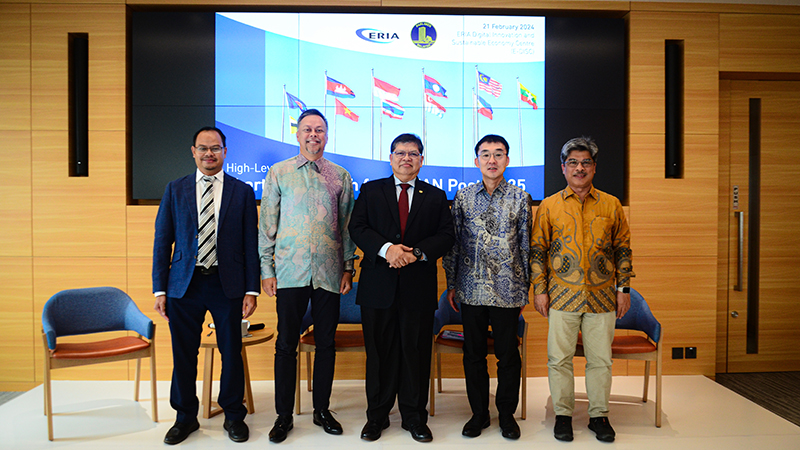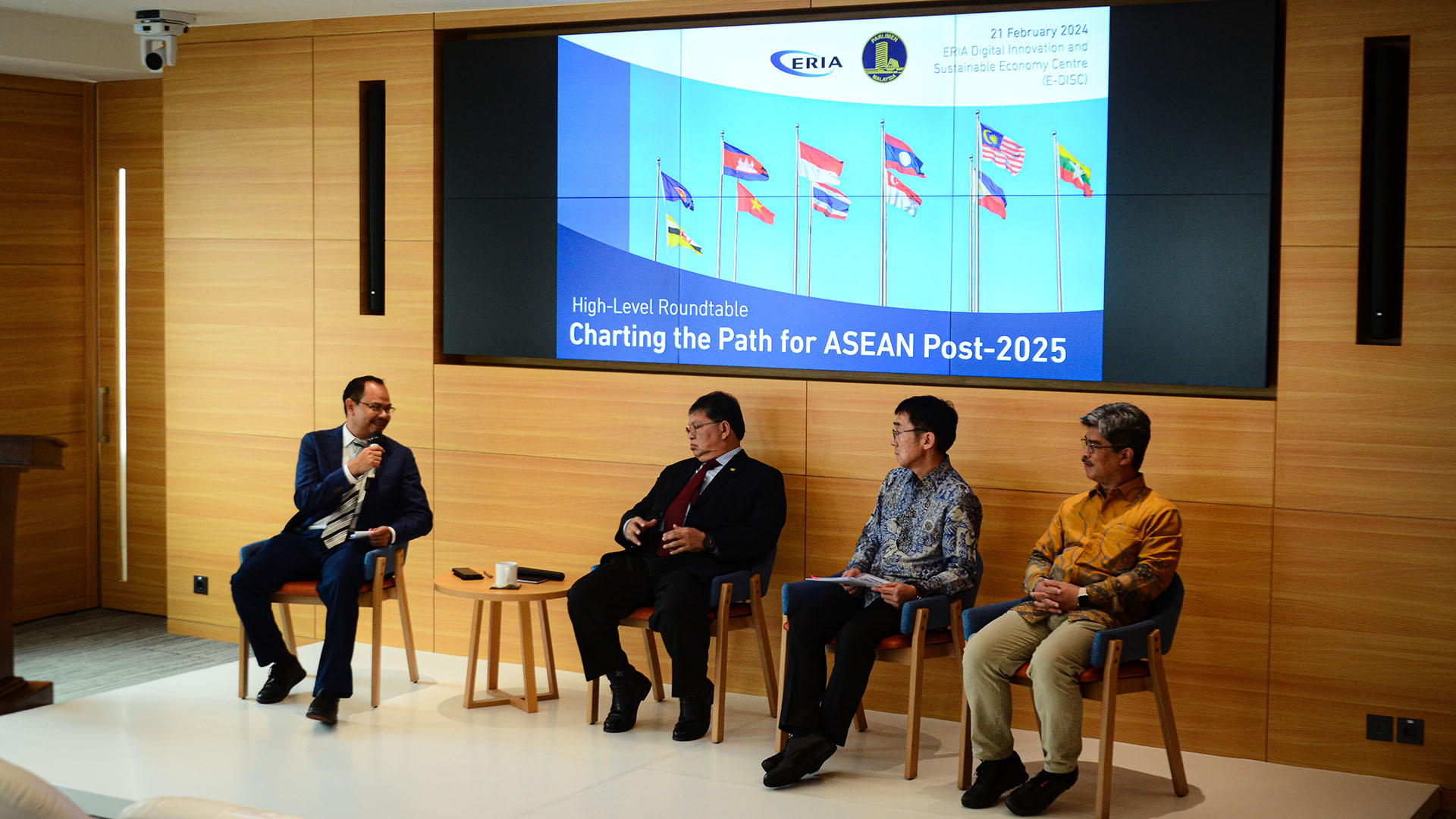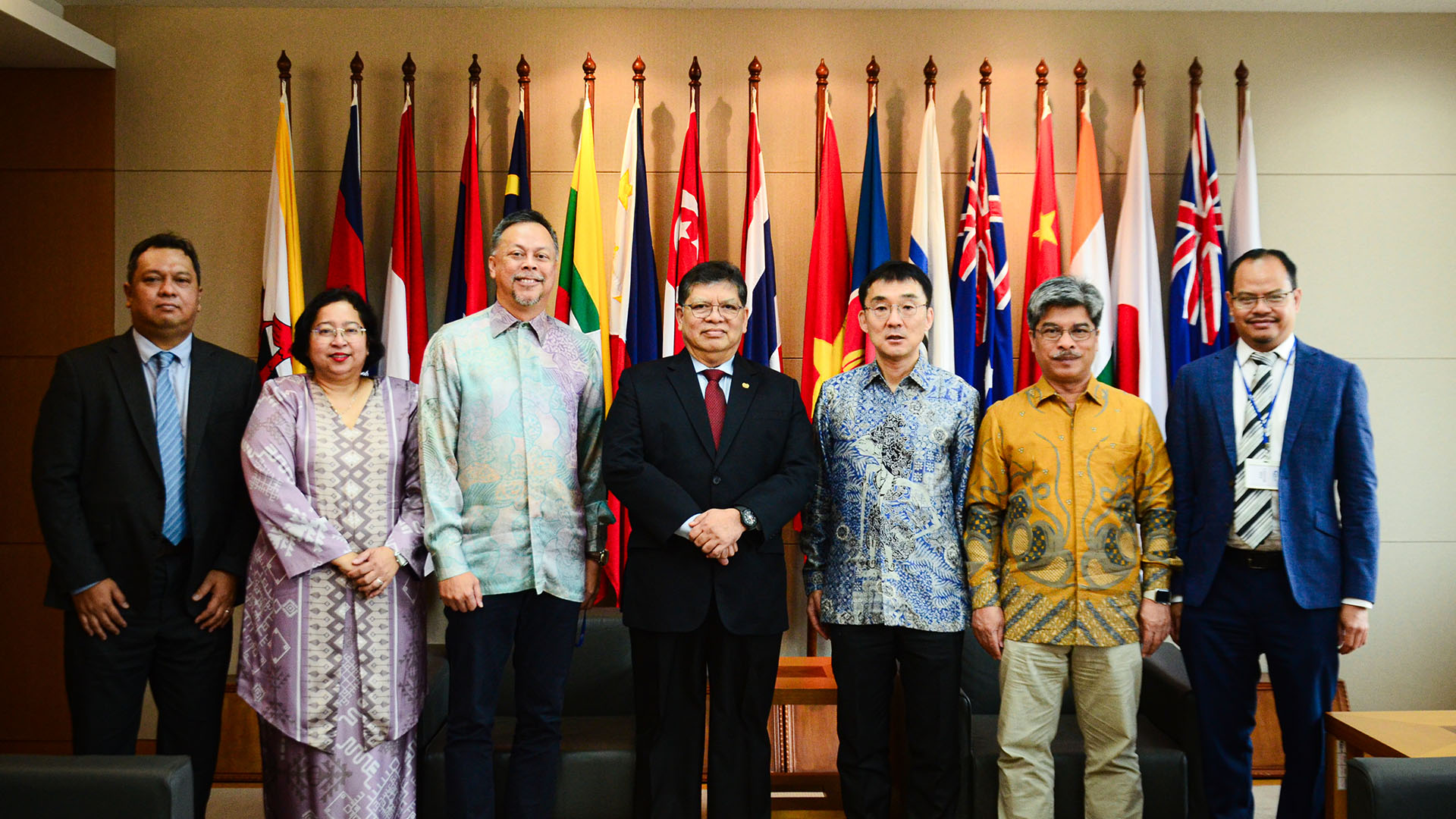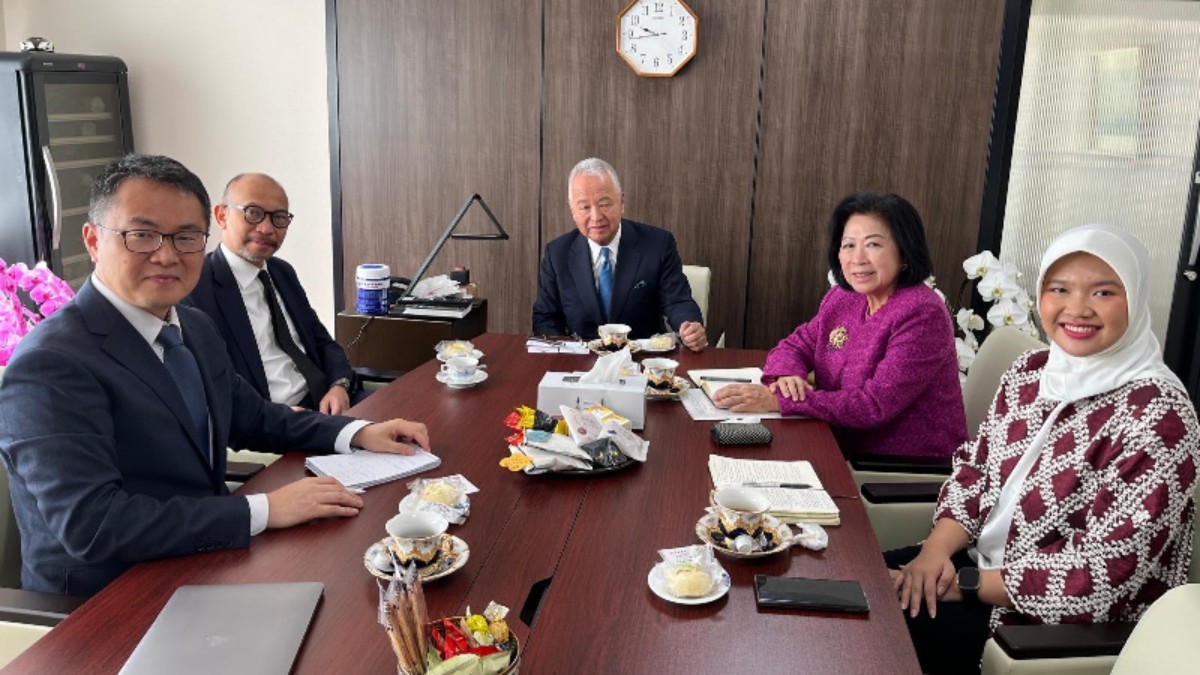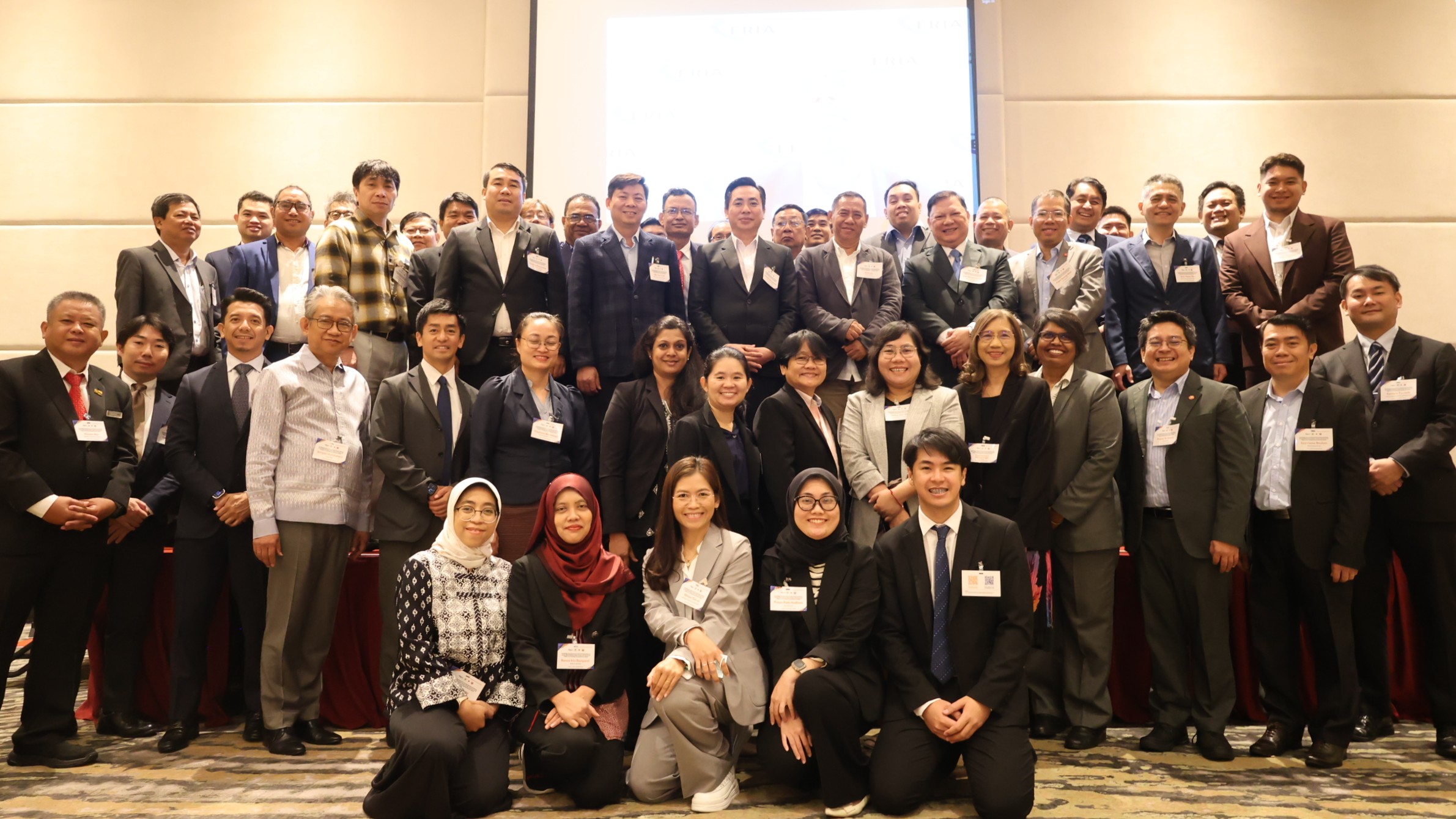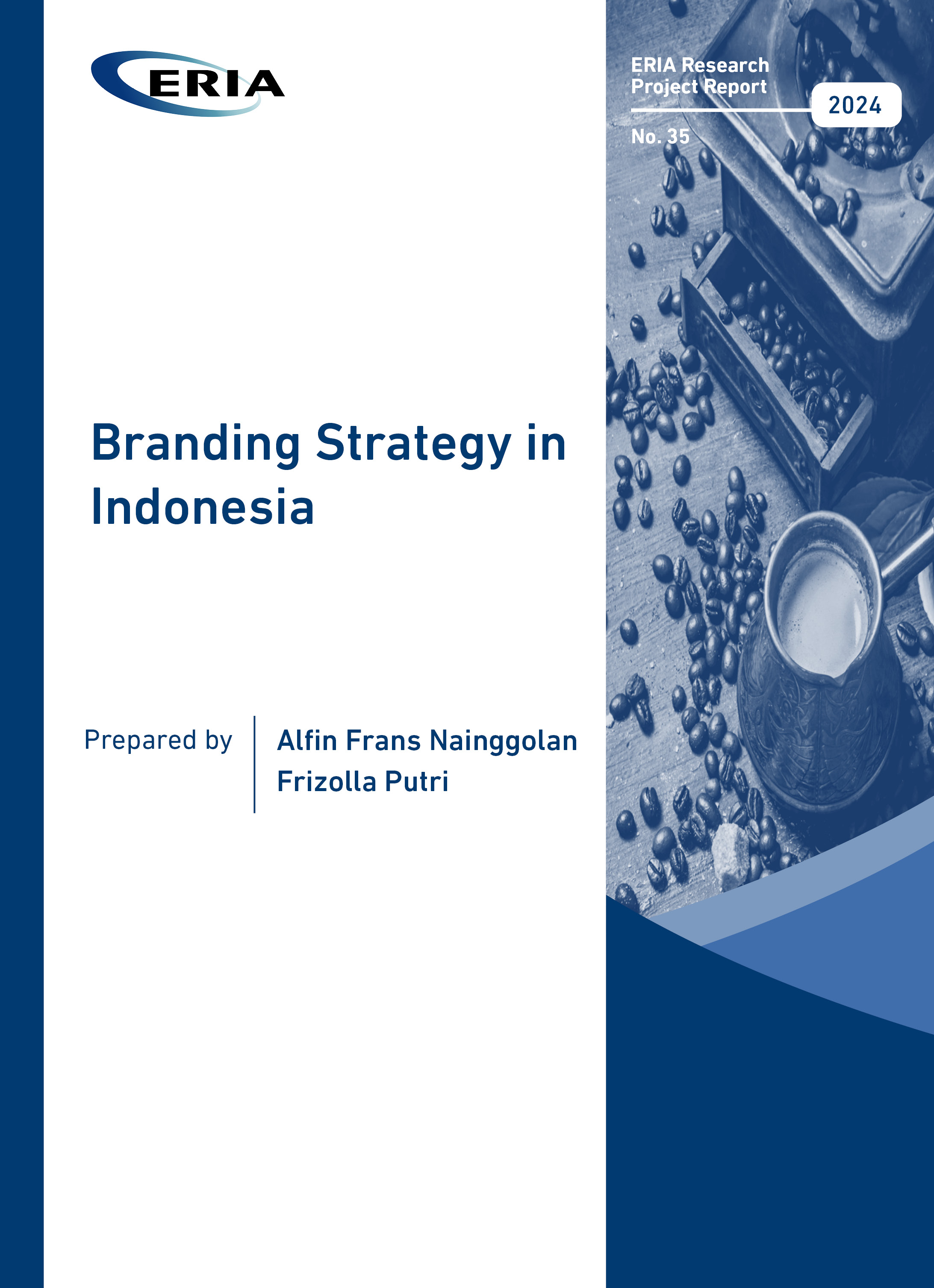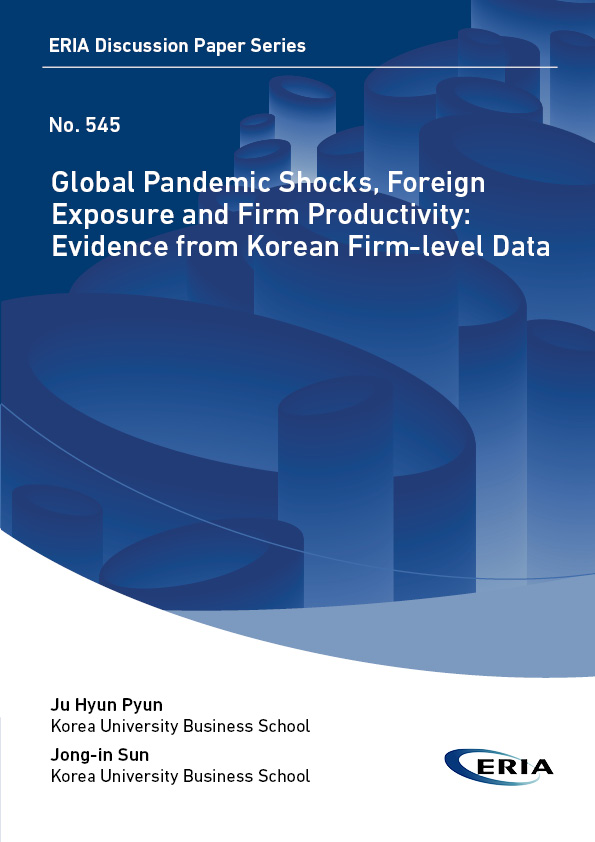ERIA High-Level Roundtable Discussion During Visit by Speaker of Lower House of Malaysian Parliament
Date:
21 February 2024Category:
NewsTopics:
ASEAN, Malaysia, Courtesy VisitShare Article:
Print Article:
Jakarta, 21 February 2024: ERIA hosted a high-level roundtable discussion, 'Charting the Path for ASEAN Post-2025', during a visit from Tan Sri Dato’ Johari bin Abdul, the 11th Speaker of the Lower House of the Malaysian Parliament. ERIA President Tetsuya Watanabe welcomed Tan Sri Johari, who came to the ERIA office accompanied by Datuk Syed Md Hasrin Tengku Hussin, the Malaysian Ambassador to Indonesia; Prof Dr Sufian Jusoh, Director of the Institute for Malaysia and International Studies at the National University of Malaysia (IKMAS-UKM); and Prof Azrul Azlan Hamzah, Principal Fellow of the Institute of Microengineering and Nanoelectronics at the National University of Malaysia (IMEN-UKM).
Speaker Tan Sri expressed his pleasure at seeing President Watanabe again after his official visit to Malaysia in October 2023, and during the meeting both parties engaged in discussions aimed at strengthening collaboration and exploring potential areas for cooperation between ERIA and the Malaysian Parliament. Tan Sri also expressed his eagerness to further promote cooperation with ERIA, recognising its extensive experience and significance in the region, saying ERIA could help ASEAN navigate the challenges and opportunities of the future. By providing research, recommendations, and insights, ERIA contributes to ASEAN's continued growth and prosperity and remains a beacon of peace and resilience.
Tan Sri and the delegation then proceeded to visit the ERIA Digital Innovation and Sustainable Economy Centre (E-DISC) for the roundtable discussion.
In his welcoming remarks, President Watanabe opened the roundtable by commending Tan Sri's visit to ERIA, which he said marked another step in cementing the strong relationship between the Malaysian government and ERIA. Tan Sri then delivered his speech, reflecting on his journey as a political scientist specialising in ASEAN topics, and his experiences in the diplomatic and political arenas. He also highlighted the role and perspective ASEAN should take amid the diverging global developments in the West and East, both politically and economically, and that this is the time for ASEAN. Noting the Lao PDR’s ASEAN Chairmanship this year and the preparation for the Malaysian Chairmanship in 2025 and beyond, Tan Sri said he hoped the forum would serve as a platform for stakeholders to share ideas in developing the roadmap for ASEAN to improve itself as a regional bloc.
A one-hour discussion was then led by Prof Azlan, with Tan Sri stressing the importance of ASEAN Member States (AMS), academia, research institutions, and policymakers collaborating in drawing up implementable plans so as not to 'keep the papers in the drawers'. He also challenged ASEAN leaders to show 'courage' in putting faith in the youth generation to prepare them for leadership change in 20 years.
President Watanabe then spoke of how ERIA has extensively contributed by providing policy research, a dialogue platform for stakeholders, and capacity building programmes under the umbrella of E-DISC. He covered three key areas in which ERIA is undertaking extensive research in line with the interests indicated by Tan Sri: artificial intelligence, food Security, and renewable energy. Prof Watanabe concurred with the idea of building cooperation across boundaries, not only between ASEAN states but also outside ASEAN. The third panel member, Dr Sufian said ASEAN is still a work in progress, and that ASEAN leaders and policymakers should be aware of global trends toward the year 2040 to fully realise the AMS’ potential as a future global economic powerhouse. Concluding points from his presentation included aspects of deepening integration, sustainability, digitalisation, and inclusive growth.
This was then followed by a short question-and-answer session. Concluding the roundtable, the three speakers acknowledged that while there are financial constraints faced by many AMS in fully harnessing and developing their natural resources beyond the scope of exporting, there exists a unique opportunity to collaboratively address this challenge.
By strategically pooling existing resources and fostering an environment conducive to external investments, ASEAN can unlock the latent potential within its borders, and leveraging the diverse expertise and innovative capacities across the region can significantly contribute to ongoing initiatives. Through joint endeavours, ASEAN can align its efforts with global sustainability concerns and make meaningful strides toward a more resilient and innovative future. Hence, the importance of engaging in a collective dialogue to explore avenues for collaboration, attract external investments, and tap into the rich intellectual resources within the ASEAN region.
